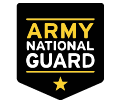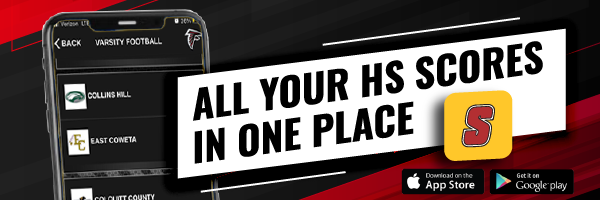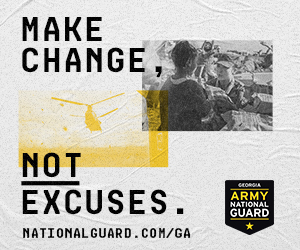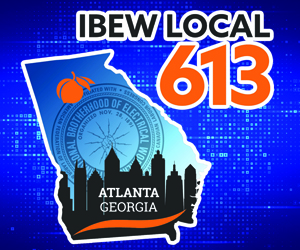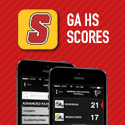Bruce Howard never knew he’d be a football coach. And as an infantryman in Alaska over 20 years ago, there probably wasn’t much reason to think he would be. While serving under a commander that stressed the importance of working in the community, Howard saw an opportunity.
It was a chance to get back to the game that he had played up to the college level and still loved. “Our company commander wanted us to go out and volunteer,” Howard recalled, “and he said ‘well you played football in college and played on the All-Army Team. You oughta go out and find a local middle school and go volunteer.’”
Days later, Howard was in the front office at a local middle school. He would start the program there, and his coaching career began.
“I really liked being around the kids,” he said. “Then the next year came and our new commander supported it. More kids came out for the team, a couple of friends from the army came and helped to be assistants. We went 8-0, and I thought ‘maybe there’s something to this coaching thing.’”
Flash forward 20 years later and Howard is entering his sixth and final season being involved with the program at Kell High School. He is retiring from coaching because of injuries sustained from his military days. But the veteran can look back on his career as an accomplished head coach and military man with a great story; one that goes far beyond his unlikely beginnings as a head coach in Alaska.
THE ARMY YEARS …
Howard spent 10 years in the service, many of them doing dangerous missions behind enemy lines. The Ohio native spent time in the second and third Ranger battalions, as well as the 101st Airborne starting in the early 1980s.
“Our job in those types of units is pretty scary,” Howard said. “You’re surrounded, outnumbered, outgunned, and with limited supplies,”
It was in the Persian Gulf that he first injured his leg. Howard was wounded three different times there, and a parachute malfunction forced him to get surgery. He was forced to leave his post in 1992 because of the injury. Soon after, he began to develop blood clots as his leg continued to suffer the consequences of 10 years spent in the line of fire.
“It got worse and worse,” Howard said. “They wanted to take it out immediately, but I was too stubborn.”
Howard would eventually have the leg removed in 1995. But despite the wounds he still encourages those who are ready to serve their country.
“A lot of people look at the leg and people say how can you counsel young men to go in?” he said. “I might have lost a leg, but I gained so much more.”
MOVING ON …
Howard lost his leg three years after leaving the military when he was coaching high school ball in Ohio.
“I knew I would lose it shortly after the end of the season. It was hurting, it was discolored,” he said. “But I wanted to make it through the season.”
Since then, Howard has gone through “at least eight” prosthetic legs. Having spent so much time on the sideline, that should come as no surprise. But when he is being fitted for a new one, he always has one requirement.
“I have to be able to get into the 3-point stance,” he says.
Despite his disability, Howard hasn’t let it get in the way of his coaching, and even saw it as a positive motivating factor when he ran alongside players during drills in practices.
“Kids will be running and wanting to drop from the heat and I’ll ask if they’re tired,” Howard said. “They’ll say ‘No, Coach, every time I’m about ready to quit I see you chugging along and it keeps me going.’”
COMING TO KELL …
Shortly after getting his teacher certification, then Kell head coach Irv Sigler rang Howard and offered him the job as the coach of the ninth grade team. Howard obliged. After all, he had been successfully teaching the fundamentals to young players ever since he was breaking them down to middle school kids in Alaska.
“My first freshman team wasn’t successful but I was giving orders to teach them the game and get them ready for varsity,” he said.
Many of the freshmen coached by the former Capital University player played a large part in the program being built at Kell, where Derek Cook’s team is currently 9-0 and looking like one of the favorites to win a state title in Class 4A.
“A lot of kids that are really close, they love each other,” he said. “One of the great things I’ve seen happen here is seeing these kids grow together.”
Howard views his team as a close-knit bunch with the type of chemistry he compares to the “brothers” he spent time with in the military. Meanwhile, the Longhorns appear to be a well-oiled machine that is the sum of its parts.
“Teams have tried to shut down our offense by keying on [Score 44 running back] Brian Randolph, but other guys have stepped up. We are a collective team this year,” Howard said.
He credited the likes of running back Chris Gaines, quarterback Austin Petrik, and many more for making the team about more than just their star.
Unfortunately, Howard will bid adieu to his coaching career after this season. His leg and other factors forced him off the sidelines two years ago. Now, after helping close friend and Vietnam War Vet and Purple Heart Winner Doug Orebaugh in an advisory role, a problem with his vision means he won’t be able to continue in any capacity. With his eyesight rapidly deteriorating, Howard says he will be legally blind by next season.
But with a great team at Kell this year, it’s likely that his final memories of watching and coaching football will be positive ones.
“We started the season in the Dome and I’d really like to finish it in the Dome,” he said. “It’d be a real nice memory to have before I stop.”
But whether Kell makes it to the Georgia Dome or not this November, the military man-turned-football coach-turned social studies teacher will already have plenty of memories to reflect on all of them helping to shape him into the man he is today. And Howard still has plenty to look forward to despite the loss of his leg and now vision; that’s just how he’s wired.
“It all goes back to military- sometimes you’re faced with severe obstacles,” he said. “You’re given a mission and your duty is to complete that mission in a timely manner. That kind of shapes my attitude.”
Bruce Howard never knew he’d be a football coach. And as an infantryman in Alaska over 20 years ago, there probably wasn’t much reason to think he would be. But while serving under a commander that stressed the importance of working in the community, Howard saw an opportunity to get back to the game that he had played up to the college level and still loved.
“Our company commander wanted us to go out and volunteer,” Howard recalled, “and he said ‘well you played football in college and played on the All-Army Team. You oughta go out and find a local middle school and go volunteer.’”
Days later, Howard was in the front office at a local middle school. He would start the program there, and his coaching career began.
“I really liked being around the kids,” he said. “Then the next year came and our new commander supported it. More kids came out for the team, a couple of friends from the army came and helped to be assistants. We went 8-0, and I thought ‘maybe there’s something to this coaching thing.’”
Flash forward 20 years later and Howard is entering his sixth and final season being involved with the program at Kell High School. He is retiring from coaching because of injuries sustained from his military days. But the veteran can look back on his career as an accomplished head coach and military man with a great story; one that goes far beyond his unlikely beginnings as a head coach in Alaska.
THE ARMY YEARS …
Howard spent 10 years in the service, many of them doing dangerous missions behind enemy lines. The Ohio native spent time in the second and third Ranger battalions, as well as the 101st Airborne starting in the early 1980s.
“Our job in those types of units is pretty scary,” Howard said. “You’re surrounded, outnumbered, outgunned, and with limited supplies,”
It was in the Persian Gulf that he first injured his leg. Howard was wounded three different times there, and a parachute malfunction forced him to get surgery. He was forced to leave his post in 1992 because of the injury. Soon after, he began to develop blood clots as his leg continued to suffer the consequences of 10 years spent in the line of fire.
“It got worse and worse,” Howard said. “They wanted to take it out immediately, but I was too stubborn.”
Howard would eventually have the leg removed in 1995. But despite the wounds he still encourages those who are ready to serve their country.
“A lot of people look at the leg and people say how can you counsel young men to go in?” he said. “I might have lost a leg, but I gained so much more.”
MOVING ON …
Howard lost his leg three years after leaving the military when he was coaching high school ball in Ohio.
“I knew I would lose it shortly after the end of the season. It was hurting, it was discolored,” he said. “But I wanted to make it through the season.”
Since then, Howard has gone through “at least eight” prosthetic legs. Having spent so much time on the sideline, that should come as no surprise. But when he is being fitted for a new one, he always has one requirement.
“I have to be able to get into the 3-point stance,” he says.
Despite his disability, Howard hasn’t let it get in the way of his coaching, and even saw it as a positive motivating factor when he ran alongside players during drills in practices.
“Kids will be running and wanting to drop from the heat and I’ll ask if they’re tired,” Howard said. “They’ll say ‘No, Coach, every time I’m about ready to quit I see you chugging along and it keeps me going.’”
COMING TO KELL …
Shortly after getting his teacher certification, then Kell head coach Irv Sigler rang Howard and offered him the job as the coach of the ninth grade team. Howard obliged. After all, he had been successfully teaching the fundamentals to young players ever since he was breaking them down to middle school kids in Alaska.
“My first freshman team wasn’t successful but I was giving orders to teach them the game and get them ready for varsity,” he said.
Many of the freshmen coached by the former Capital University player played a large part in the program being built at Kell, where Derek Cook’s team is currently 9-0 and looking like one of the favorites to win a state title in Class 4A.
“A lot of kids that are really close, they love each other,” he said. “One of the great things I’ve seen happen here is seeing these kids grow together.”
Howard views his team as a close-knit bunch with the type of chemistry he compares to the “brothers” he spent time with in the military. Meanwhile, the Longhorns appear to be a well-oiled machine that is the sum of its parts.
“Teams have tried to shut down our offense by keying on [Score 44 running back] Brian Randolph, but other guys have stepped up. We are a collective team this year,” Howard said.
He credited the likes of running back Chris Gaines, quarterback Austin Petrik, and many more for making the team about more than just their star.
Unfortunately, Howard will bid adieu to his coaching career after this season. His leg and other factors forced him off the sidelines two years ago. Now, after helping close friend and Vietnam War Vet and Purple Heart Winner Doug Orebaugh in an advisory role, a problem with his vision means he won’t be able to continue in any capacity. With his eyesight rapidly deteriorating, Howard says he will be legally blind by next season.
But with a great team at Kell this year, it’s likely that his final memories of watching and coaching football will be positive ones.
“We started the season in the Dome and I’d really like to finish it in the Dome,” he said. “It’d be a real nice memory to have before I stop.”
But whether Kell makes it to the Georgia Dome or not this November, the military man-turned-football coach-turned social studies teacher will already have plenty of memories to reflect on all of them helping to shape him into the man he is today. And Howard still has plenty to look forward to despite the loss of his leg and now vision; that’s just how he’s wired.
“It all goes back to military- sometimes you’re faced with severe obstacles,” he said. “You’re given a mission and your duty is to complete that mission in a timely manner. That kind of shapes my attitude.”



